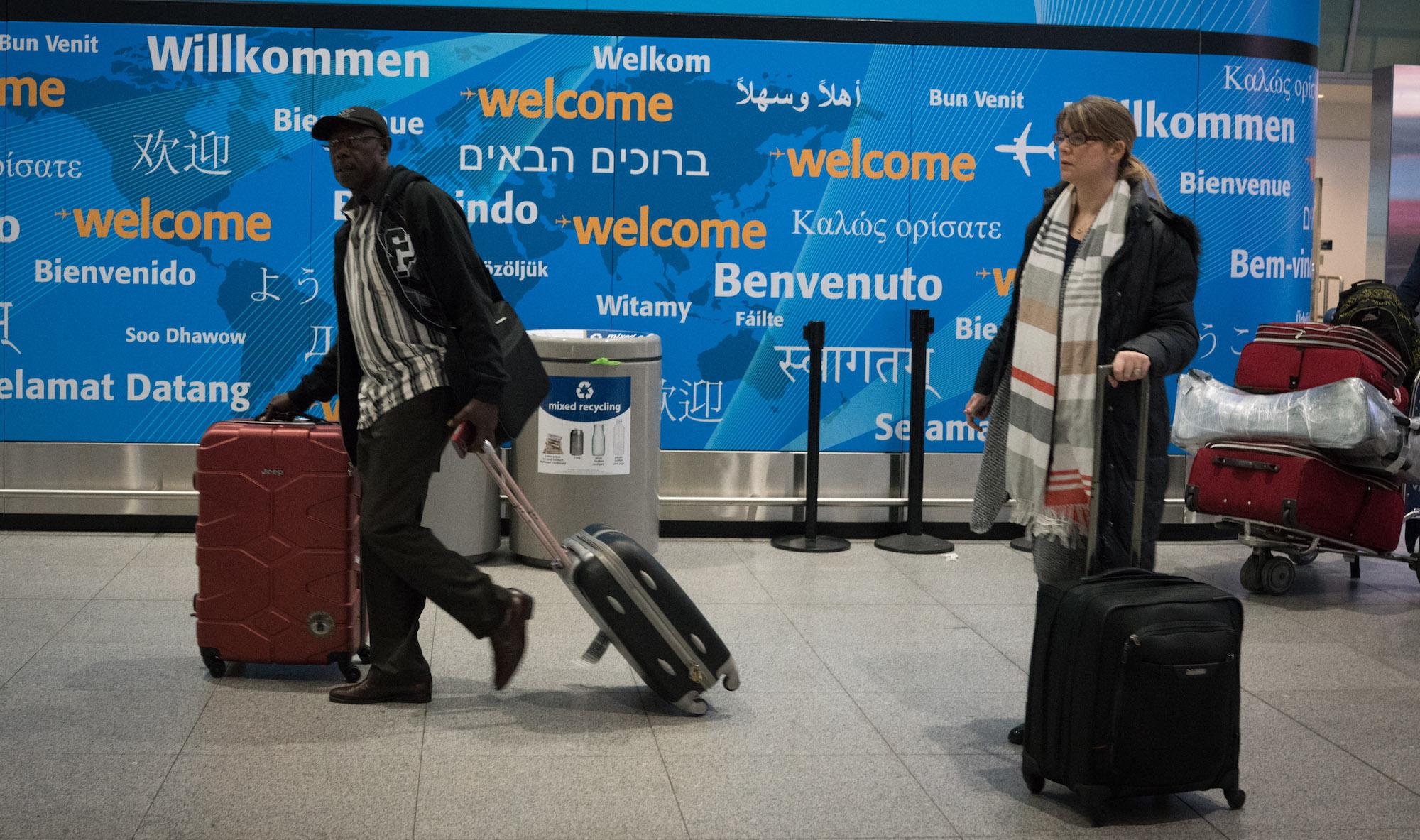Judges grill lawyers over President Trump’s travel ban
The three judges said a decision would come as soon as possible

Your support helps us to tell the story
From reproductive rights to climate change to Big Tech, The Independent is on the ground when the story is developing. Whether it's investigating the financials of Elon Musk's pro-Trump PAC or producing our latest documentary, 'The A Word', which shines a light on the American women fighting for reproductive rights, we know how important it is to parse out the facts from the messaging.
At such a critical moment in US history, we need reporters on the ground. Your donation allows us to keep sending journalists to speak to both sides of the story.
The Independent is trusted by Americans across the entire political spectrum. And unlike many other quality news outlets, we choose not to lock Americans out of our reporting and analysis with paywalls. We believe quality journalism should be available to everyone, paid for by those who can afford it.
Your support makes all the difference.In the first major legal test of the new administration, attorneys argued over President Trump’s travel ban on Tuesday night on whether to restore the refugee and visa ban against seven majority Muslim countries.
The president’s order banned travelers from Iran, Iraq, Libya, Somalia, Sudan, Syria and Yemen from entering the United States for 90 days and all refugees for 120 days. However, Syrian refugees would be barred indefinitely.
Three appellate judges from the Ninth Circuit Court of Appeals in San Francisco considered the fate of Trump’s temporary travel ban, four days after it was blocked by a federal judge in Seattle. The three judges presiding over the case are William C Canby Jr, who was appointed by President Jimmy Carter; Judge Richard Clifton, who was appointed by President George W Bush; and Judge Michelle Taryn Friedland who was appointed by President Barack Obama.
In one exchange, Judge Friedland asked Justice Department lawyer August Flentje if the government could provided any evidence connecting the seven banned countries to terrorism. He responded by saying, “these proceedings have been moving very fast.”
Before the hearing, President Trump said that he hopes the case would go on to the Supreme Court while arguing that the order is important for the country. Halfway through the arguments, more than 120,000 viewers listened in via the court’s official YouTube page.
Washington State Solicitor General Noah Purcell argued on behalf of Washington state that the motion would throw the country into chaos. “The executive order itself caused irreparable harm to our state and its people," he argued. "We had longtime residents who couldn't travel without knowing if they can return.”
The states of Washington and Minnesota brought the case against the Trump administration, which will likely reach the US Supreme Court.